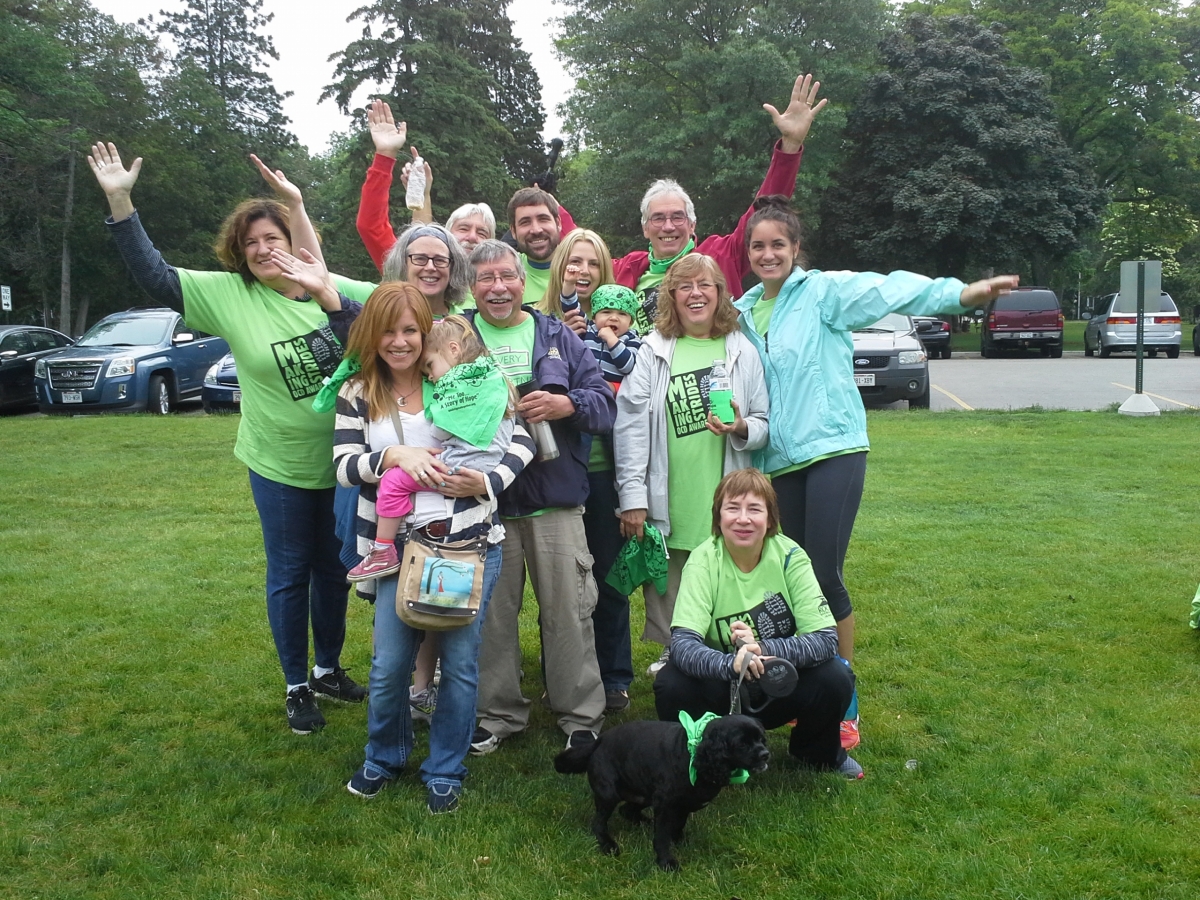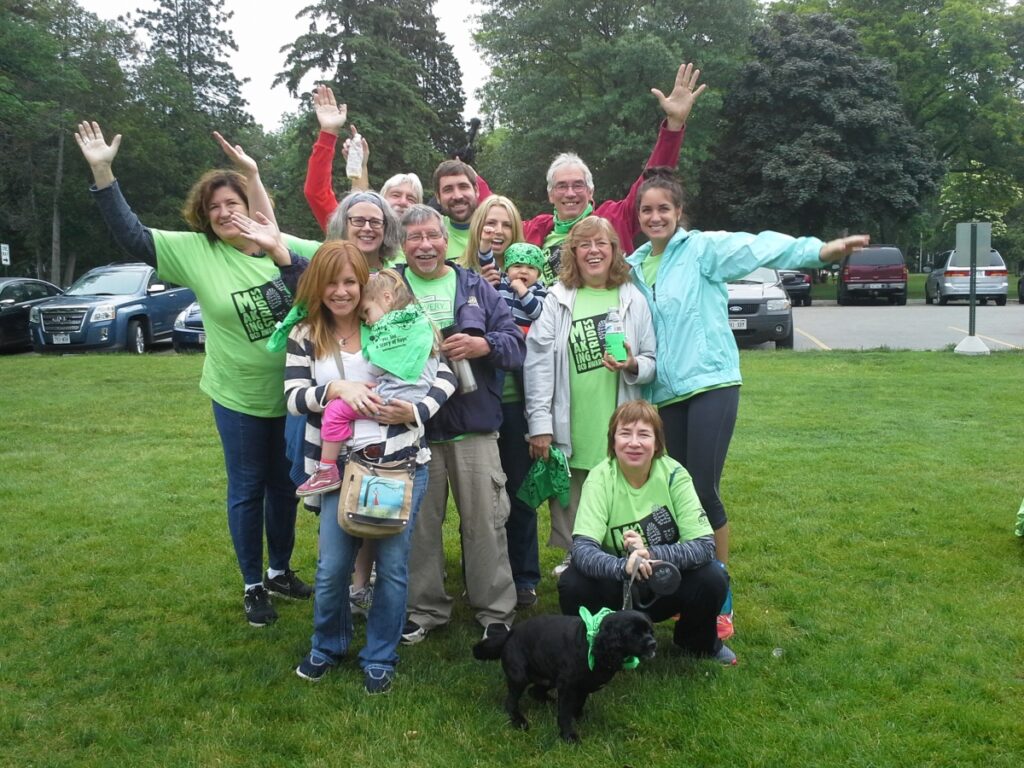
The first OCD-Wisconsin Walk was held Saturday, June 13th. The two-mile walk around Fowler Park in Oconomowoc, WI was organized by OCD-Wisconsin(link is external), an affiliate of the International Obsessive Compulsive Disorder Foundation (IOCDF). Rogers Memorial Hospital was a major sponsor for the event. The goal of the walk was to raise awareness for Obsessive Compulsive Disorder (OCD).
According to the American Psychiatric Association, OCD is linked to impairing multiple realms of an individual’s life. This means that OCD can impact a person’s work, school, family life and overall quality of life. Rogers strives to make every life worth living and raising awareness about OCD is the first step towards positively impacting someone’s life.
Our very own David Jacobi, PhD, clinical supervisor, started the event with a few opening words about the prevalence of OCD, which currently affects about 3 million adults and over 500,000 children and adolescents nationally. Jacobi also discussed effective treatment methods available, as well as the advocacy work of the IOCDF, OCD-Wisconsin and Rogers Memorial Hospital. Jacobi made special notice of the newly-created Barry Thomet Scholarship and said a few words about its namesake.
At the walk, the first Barry Thomet Scholarships were awarded to two deserving high school students. Each student was awarded $500 to contribute towards their secondary education. The students were nominated by their school counselors for overcoming obstacles they face due to their OCD.
The scholarship’s namesake, Barry Thomet, has been a devoted Rogers employee for more than 20 years. Thomet has shown exemplary devotion to those suffering from OCD, as well as passionate commitment to their families.
Rogers had the largest team of employees represented at the walk. The total number of attendees was between 150 and 160 people— a substantial turnout considering a poor weather was forecast for this first-ever event.
Between registration and sponsorship fees, the event generated about $10,000, which OCD- Wisconsin will then use to help provide valuable resources and support to those with OCD, their families and their communities. Additionally, the funds will help raise awareness about successful OCD treatment methods and research for those affected.


